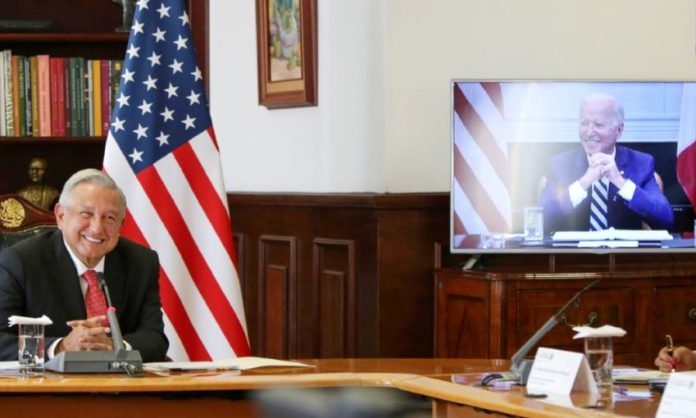President López Obrador will ask United States President Joe Biden for the U.S. to legally and financially support the expansion of Mexico’s tree-planting employment program into Central American nations.
Central Americans who work in the Sembrando Vida (Sowing Life) scheme for three years would qualify for a United States work visa and could apply for U.S. citizenship after working in that country for six months annually during three consecutive years, according to the plan outlined by López Obrador in a video message filmed Sunday at his ranch in Palenque, Chiapas.
One of the Mexican government’s flagship programs, Sembrando Vida employs participants in planting new trees.
AMLO, as the president is commonly known, said that he will make the proposal to Biden at the Leaders Summit on Climate, which will be hosted virtually by the U.S. president this Thursday and Friday.
He suggested that the plan could be part of a regional migration agreement supported by Mexico, the United States and Canada, as well as Central American countries — from which large numbers of migrants are currently fleeing to seek asylum in the U.S.
After working in a United States-funded Sembrando Vida program in their country for three years, Central American participants would have the “automatic right” to a visa that would allow them to work in the U.S. for six months per year, López Obrador said.
“You go [to the U.S.] for six months and return to your town. After having a work visa for three years, with good behavior, you have the right to request United States citizenship,” he said.
“It’s about putting order to the migration flows, not rejecting [migrants at the border] and applying coercive measures.”
AMLO said the plan could help to put people smugglers out of business. He touted the benefits of Sembrando Vida in Mexico, saying that trees are being planted on 1 million hectares of land and that the program is supporting more than 400,000 jobs.
The participants, who are paid 4,500 pesos per month (US $227), are planting fruit trees and timber-yielding trees, López Obrador said.
“This helps to stop people migrating, and it helps the environment a lot — that’s the best thing,” he said. “… In three years, we could provide up to 1.3 million jobs to our Central American brothers and Mexicans in Chiapas, Campeche, Veracruz, Oaxaca and Tabasco,” he said.
The Mexican government has already supported the implementation of tree-planting schemes similar to Sembrando Vida in Honduras, Guatemala and El Salvador. The United States is a large investor in development programs in Central America but has not specifically supported those programs.
After a telephone discussion in early March, López Obrador and Biden said in a joint statement that they had agreed to collaborate to “develop legal pathways for migration” in addition to cooperating to address the root causes of regional migration and to improve migration management.
Prior to the call, López Obrador said that he would ask his U.S. counterpart to consider establishing a guest worker program for Mexican and Central American migrants, but the joint statement made no specific mention of such a proposal.
Sembrando Vida has not been free of criticism in Mexico, where it has been accused of causing deforestation and triggering corruption.
Source: Milenio (sp), El Universal (sp)
